The Best Strength Workout for Runners
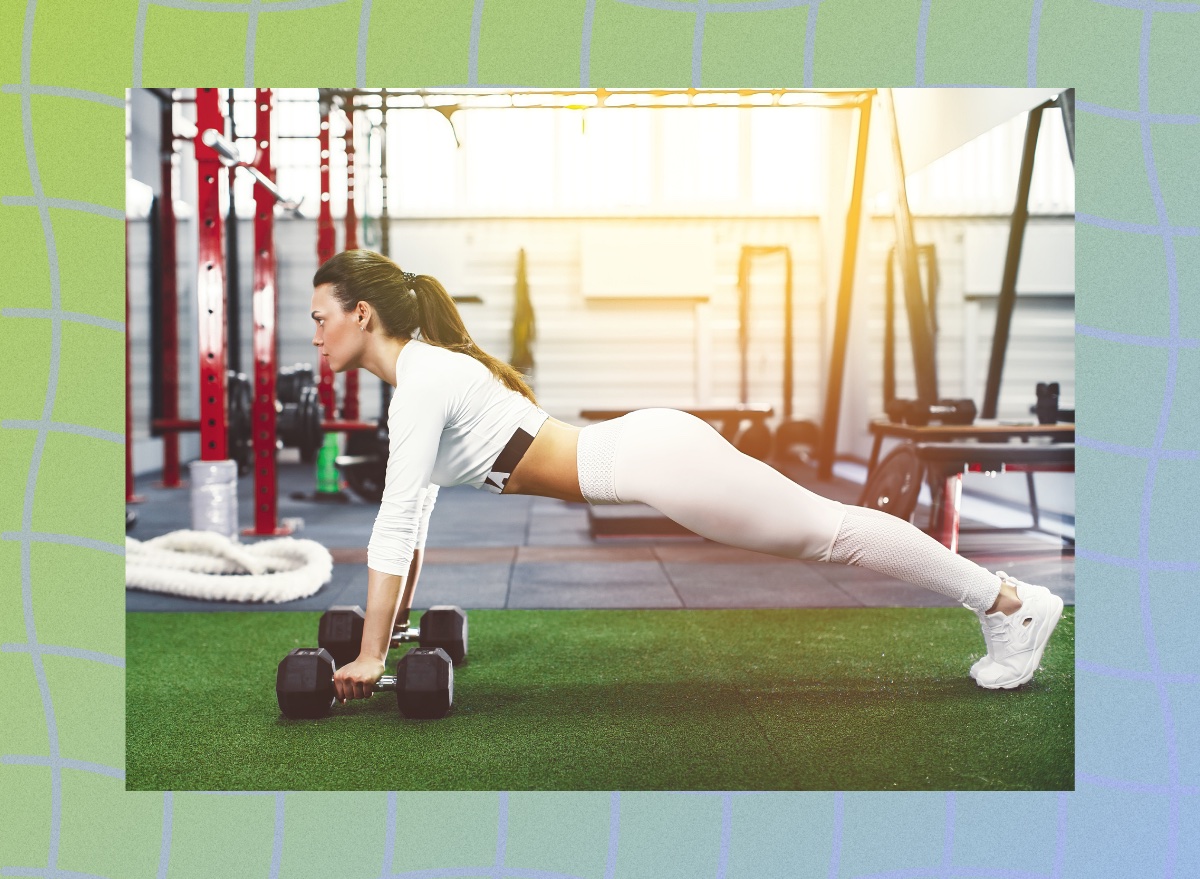
There's more to running than just lacing up your sneakers and hitting the pavement. While logging miles is essential, incorporating strength training into your routine can elevate your running game, so I have the best strength workout for runners to maintain form, prevent nagging overuse injuries, and boost overall performance. Remember, if you get hurt, you can't run; if you can't run, you can't improve!
As a certified strength and conditioning specialist (CSCS), I've worked with runners of all levels and speeds. From weekend warriors to collegiate athletes, sprinters to distance runners, these tried-and-true movements are designed to enhance running performance.
In this article, I'll reveal the ultimate strength workout for runners that targets key muscle groups, enhances stability, and boosts power. From the mighty hex bar deadlift, which builds foundational lower-body strength, to the dynamic dumbbell renegade row, which ensures your upper body isn't left out, each exercise is carefully selected to complement your running.
Get ready to transform your runs with this strength workout for runners that promises to strengthen each stride.
Hex Bar Deadlift
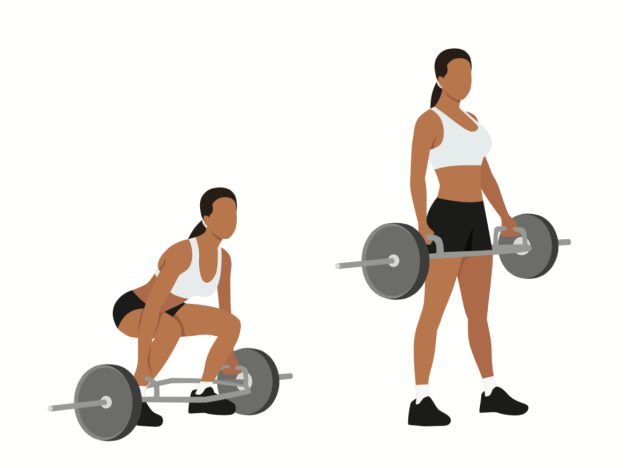
The hex bar deadlift is the cornerstone of this running workout, providing an essential boost to your lower-body strength. This powerhouse exercise primarily targets your posterior chain, honing strength and power in your glutes, hamstrings, lower back, and calves. Your quadriceps and core also get some attention, ensuring a well-rounded muscle engagement that supports your running performance and overall stability.
Stand inside the hex bar deadlift with your feet shoulder-width apart and your ankles aligned with the center of the hex bar. Bend at your hips and knees to lower your torso until you can grasp the bar handles. Ensure your back is straight, your chest is up, and your core is engaged. Push through your whole foot and extend your hips and knees simultaneously to lift the bar. Stand up straight, squeezing your glutes at the top of the movement. Reverse the motion by bending your hips and knees to lower the bar back to the ground in a controlled manner, maintaining a straight back throughout the descent.
Complete three sets of five to eight reps. Rest for 90 seconds between sets.
Dumbbell Renegade Row
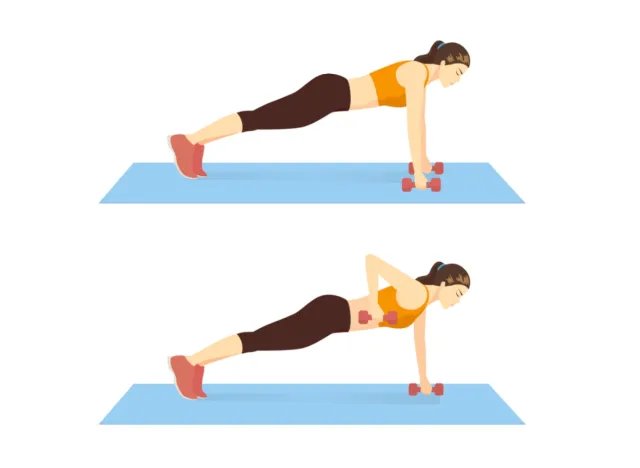
Runners often overlook their upper body when they hit the weight room, missing out on a crucial component of efficient running mechanics. Enter the dumbbell renegade row, a powerful exercise that checks all the boxes for upper body enhancement in running performance.
This dynamic move builds strength, stability, and mobility by engaging your lats, upper back, shoulders, chest, and core. Combining a tall plank with dumbbell rows targets these muscles and boosts anti-rotational core strength as you row from side to side. You'll enhance core and shoulder stability while improving thoracic mobility, all of which are vital for a balanced, powerful running stride.
For the dumbbell renegade row, begin in a high plank position with a dumbbell in each hand, your feet shoulder-width apart for stability. Your body should form a straight line from your head to your heels. Engage your core to prevent your hips from sagging. Row one dumbbell toward your hip by bending your elbow and pulling it close to your body while stabilizing yourself with the opposite arm. Lower the dumbbell back to the ground and repeat the motion with the other arm. Maintain a steady and controlled movement, ensuring your body stays as stable as possible throughout the exercise.
Perform three sets of eight to 12 reps per side. Rest for 90 seconds between sets.
Bulgarian Split Squat
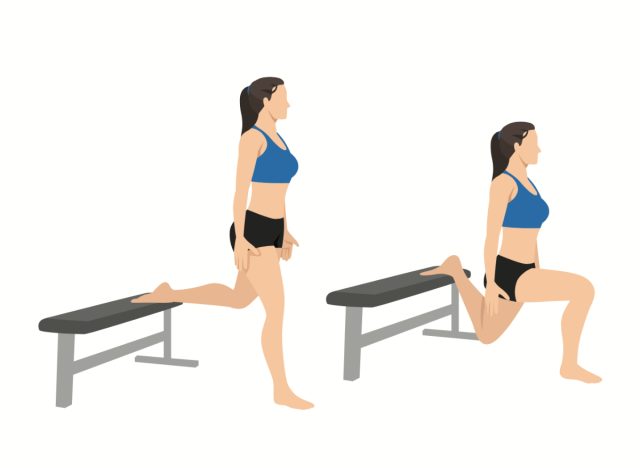
Running demands single-leg strength, stability, and endurance, making the Bulgarian split squat a perfect fit.
This versatile exercise shines as a potent strength and muscular endurance builder in the gym. By incorporating variations of the Bulgarian split squat, you'll boost the size and strength of your quadriceps and glutes while challenging your core with different holds, whether you use a barbell, a pair of dumbbells, or a pair of kettlebells.
As an added bonus, depending on your setup, this exercise can also improve your ankle mobility. It's a comprehensive move that packs a punch, ensuring you're primed for peak running performance.
To execute a Bulgarian split squat, stand a few feet before a bench or a similar elevated surface. Extend one leg back and place the top of your foot on the bench. Your other leg should be positioned in front of you with the foot flat on the ground. Lower your hips toward the floor by bending your front knee while your back knee lowers toward the ground. Keep your torso upright and your core engaged. Push through the heel of your front foot to return to the starting position. Complete the desired number of reps on one leg before switching to the other.
Complete three sets of eight to 12 reps per side. Rest for 90 seconds between sets.
Coach Tip: Inclining your torso forward during the exercise will emphasize your quadriceps. Conversely, keeping your torso upright will shift the focus to your hips.
Calf Raise Holds
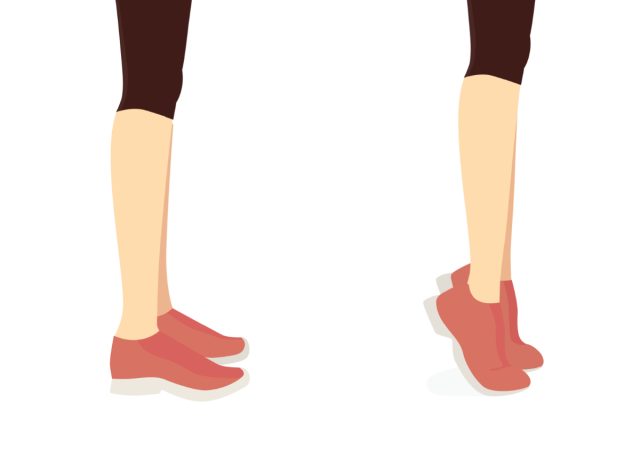
Overuse injuries are a common bane for runners, often stemming from tight or weak muscles, particularly in the calves. Enter calf raise holds, a stellar exercise for building foundational strength and endurance.
By regularly practicing calf raise holds, you'll develop more resilient muscles, joints, and tendons, helping to prevent injuries and keep you running strong. These simple yet effective holds enhance your calves' strength and durability, ensuring your lower legs are primed to handle the repetitive impact of running.
Perform calf raise holds by standing with your feet hip-width apart. Slowly rise up onto the balls of your feet, lifting your heels as high as possible. Hold this elevated position, keeping your core tight and your body balanced. Ensure your weight is evenly distributed across the balls of your feet. Hold the position for the specified duration, then lower your heels back to the ground in a controlled manner. To increase the difficulty, you can perform this exercise on an elevated surface like a step, allowing for a greater range of motion.
Perform three sets of 15-second holds with 60 seconds of rest between sets. As the weeks progress, increase the duration of the holds by five seconds weekly.
Dumbbell Chops
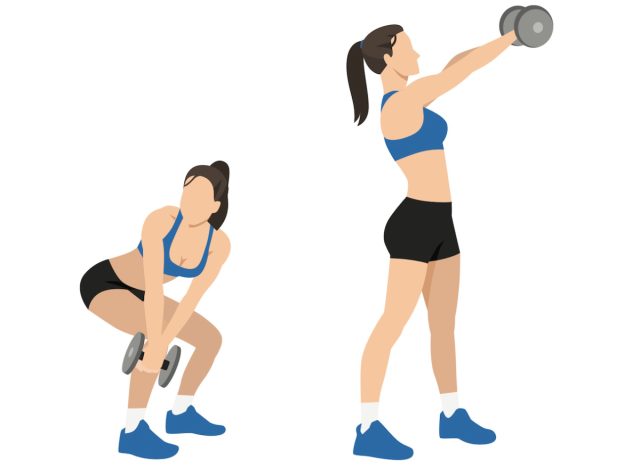
Incorporating dumbbell chops into your routine can significantly enhance your running performance by building core strength and improving rotational stability. T
his dynamic exercise targets the obliques, abs, and lower back, which are crucial for maintaining proper running form and preventing injuries. By performing dumbbell chops, you'll develop a stronger, more stable core that can better withstand the demands of running. This improved core strength helps to maintain balance and power during your runs, leading to more efficient movement and reduced risk of injury.
To do dumbbell chops, stand with your feet shoulder-width apart, holding a dumbbell with both hands. Raise the dumbbell above one shoulder with your arms extended but not locked. Rotate your torso and hips as you bring the dumbbell down diagonally across your body toward the opposite hip, bending your knees slightly to engage your lower body. Keep your core engaged throughout the movement. Reverse the motion by bringing the dumbbell back up to the starting position.
Complete three sets of 10 to 15 chops per side. Rest for 60 to 90 seconds between sets.









